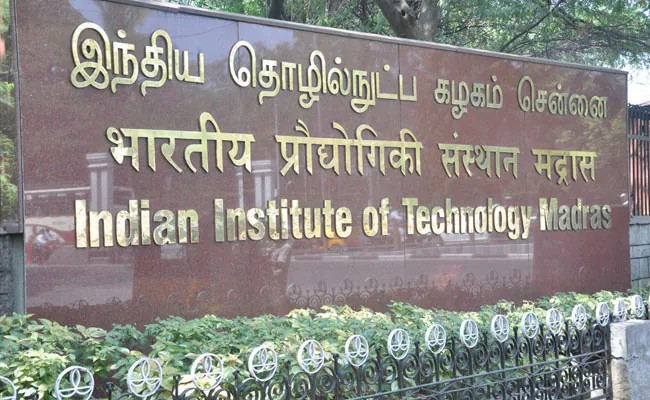It has been alleged that the IIT's Centre of Excellence in Sports Science and Analytics conducted the tests on students on 19 August without parental consent or the mandatory approval of the Institutional Ethics Committee.
Published Dec 06, 2024 | 7:29 PM ⚊ Updated Dec 06, 2024 | 7:39 PM

IIT-Madras management acknowledged the tests but denied that stimulants were administered or invasive procedures performed.
Several students of the Vani Vilas Matriculation Higher Secondary School, managed by the IIT-Madras Educational Trust, were allegedly subjected to tests resembling clinical trials.
The tests were conducted without parental consent and in breach of ethical guidelines. Worried parents have now complained to the National Human Rights Commission (NHRC) and the Tamil Nadu Medical Council.
It has been alleged that the IIT’s Centre of Excellence in Sports Science and Analytics (CESSA) conducted the tests on students on 19 August without parental consent or the mandatory approval of the Institutional Ethics Committee (IEC).
Parents expressed suspicion that the trials might have involved the administration of drugs or stimulants, raising concerns over potential health implications and violations of the New Drugs and Clinical Trials Rules, 2019, and the Drugs and Cosmetics Act, 1940.
Karthik Kannan, a parent, was enraged. “Our children are not test subjects. IIT-Madras must answer for the blatant violation of guidelines and the trust we placed in them,” he said.
Parents have requested an independent inquiry to determine the scope and nature of the testing, alleging that IIT-Madras used students to advance sports science research.
The petition to the NHRC demanded a probe into whether drugs or stimulants were administered, their impact on the students’ health, and the extent to which evidence might have been destroyed.
A 30 October letter from the Tamil Nadu Medical Council (TNMC) expressed concern over the testing and called for an immediate inquiry into the incident.
The council highlighted the lack of adherence to ethical research practices and the absence of parents’ consent, labeling it a violation of the fundamental rights of minors.
In an email dated 14 October, IIT-Madras management acknowledged the tests but denied that stimulants were administered or invasive procedures performed.
The letter also stated that instructions had been issued to the faculty to ensure compliance with parental consent protocols in the future.
Despite these assurances, parents remain unconvinced. At a meeting on 15 November attended by Chief Educational Officer Dr A. Pugalendhi and school management representatives, parents reiterated their demand for transparency and accountability.
Parents and activists questioned whether similar unauthorised trials have been conducted by IIT-Madras in other research areas, such as advanced cancer studies. Allegations of evidence tampering have further fuelled the demand for a comprehensive investigation.
A report by The Indian Express suggested that students were asked to perform physical activities such as running and jumping during the trials, which some children later described as physically distressing.
Parents have outlined six key areas that need urgent inquiry:
1. The extent of unauthorised tests conducted by IIT-Madras.
2. Whether any drugs or stimulants were administered.
3. The potential health risks to students.
4. The possibility of tampering with or destruction of evidence.
5. The role of IIT-Madras’ advanced cancer research in such tests.
6. Immediate measures to prevent such incidents in the future.
Speaking to South First, VP Sarathi, Chairperson of Coimbatore Human Rights Forum, outlined four key concerns:
(Edited by Majnu Babu).
